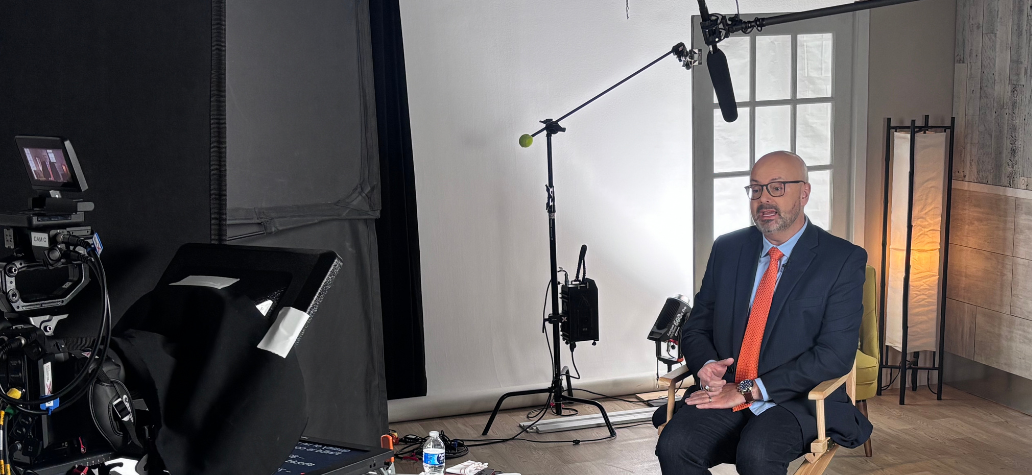DENVER—The National Endowment for Financial Education® (NEFE®) conducted in-depth opinion polling of Native community members nationwide about their experiences with the financial services sector. One-third of respondents say they have experienced bias, discrimination or exclusion from financial services institutions and individuals, which is double that of the general U.S. adult population. This new data continues NEFE’s research into the disparate issues marginalized communities encounter.
“Through this polling, we are gaining a better understanding of the bias and exclusion that marginalized communities experience, and these data can be the key to helping researchers, educators and policymakers focus on improvements in access to equitable and effective learning interventions,” says Billy Hensley, Ph.D., president and CEO of NEFE. "Objective attention to these data will unequivocally provide decision makers with evidence to move toward meaningful change.”
NEFE, in conjunction with SurveyUSA, polled U.S. adults who are members of a Native community. The sample was a cross-section of Native respondents, including American Indian (73%); Indigenous American (21%); Native Hawaiian (11%); First Nations/Inuit (6%); and Alaska Native (5%). Key outcomes of the polling were:
- One-third of respondents say they experienced bias, discrimination or exclusion by or from institutions and individuals within the financial services sector while seeking services related to banking, saving, lending, credit, insurance, taxes, financial planning, financial counseling and/or housing. Additionally, 15% say they are unsure if they experienced bias, discrimination or exclusion.
- When asked about owning a bank account, 17% of respondents say they are “unbanked,” defined as neither they nor any members of their household own a bank account. This is more than four times higher than the FDIC’s estimate of unbanked households nationwide.
- Over the past year, 30% of respondents say they cashed a check somewhere other than a bank or a credit union.
- Ten percent say they took out a payday or payday advance loan sometime within the past year.
- When asked about using online payment services (PayPal, Venmo, etc.), 68% of respondents overall say they use these services, including 62% of unbanked respondents.
A breakdown of key data from the polls include:
- Of those who say they have experienced bias, discrimination or exclusion, 30% say they believed it was due to their race/ethnicity, while 27% feel their age was the cause.
- In addition, 27% of those who experienced bias, discrimination or exclusion strongly disagree that their financial situation helps them feel optimistic about their future.
- Over half (54%) say they can succeed financially if they put their mind to it.
- A majority of respondents who identify as Black (58%) say they have experienced bias, discrimination or exclusion in seeking financial services, compared to 48% of those identifying as Hispanic/Latino. In addition, 45% of those who identify as LGBTQ+ say they experienced bias, discrimination or exclusion.
- A quarter of respondents with household incomes < $30,000 say they are unbanked as do 21% of respondents who say they are currently unemployed.
- More respondents under 50 years old say they used a non-bank service to cash a check within the past year, compared to those over 50 years old (36% vs. 21%).
- Online payment services are preferred by those under 50 years old (81% vs. 49%).
NEFE is committed to documenting the story of Native communities. The organization’s visiting scholar for 2023—Stephanie Cote—is authoring a series based on interviews of leaders of Indigenous People. In addition, NEFE has followed changes to the Community Reinvestment Act, which encourages banks to help meet the credit needs of communities where they do business and promote financial inclusion by supporting bank activities in Native Land Areas. NEFE also interviewed policymakers nationwide in developing a summary document and podcast episode, “Rethinking Financial Education to Support Diverse Cultures.”
“Collectively, the field of financial education must understand and heed the systemic, technological and personal barriers that exist to people proactively addressing their financial well-being. Through continued understanding of access challenges, particularly among Native communities, we can eliminate barriers and strive for more equitable solutions,” adds Hensley.
For more on this survey, visit the Consumer Poll section of the NEFE website.
SurveyUSA Full Methodology
This survey was conducted from September 22-30, 2023, by SurveyUSA on behalf of NEFE. SurveyUSA interviewed 750 adult Indigenous Americans from across the entire United States. For purposes of this research, Indigenous Americans were defined as those who identify as American Indian, Alaskan Native, Native Hawaiian or Other Pacific Islander. This research was conducted online using a blended sample, mixed mode approach. 86% of respondents were online panelists chosen randomly by Lucid Holdings, LLC, of New Orleans, who were shown the survey questions on the display of their smartphone, laptop or tablet. 14% of respondents were texted on their cellphones by live operators who secured the cooperation of each respondent before linking them to an online survey, using telephone sample of Indigenous Americans purchased from Aristotle in Washington, D.C. The pool of adult respondents was weighted to U.S. Census targets for gender, age, ethnicity, education and home ownership.


